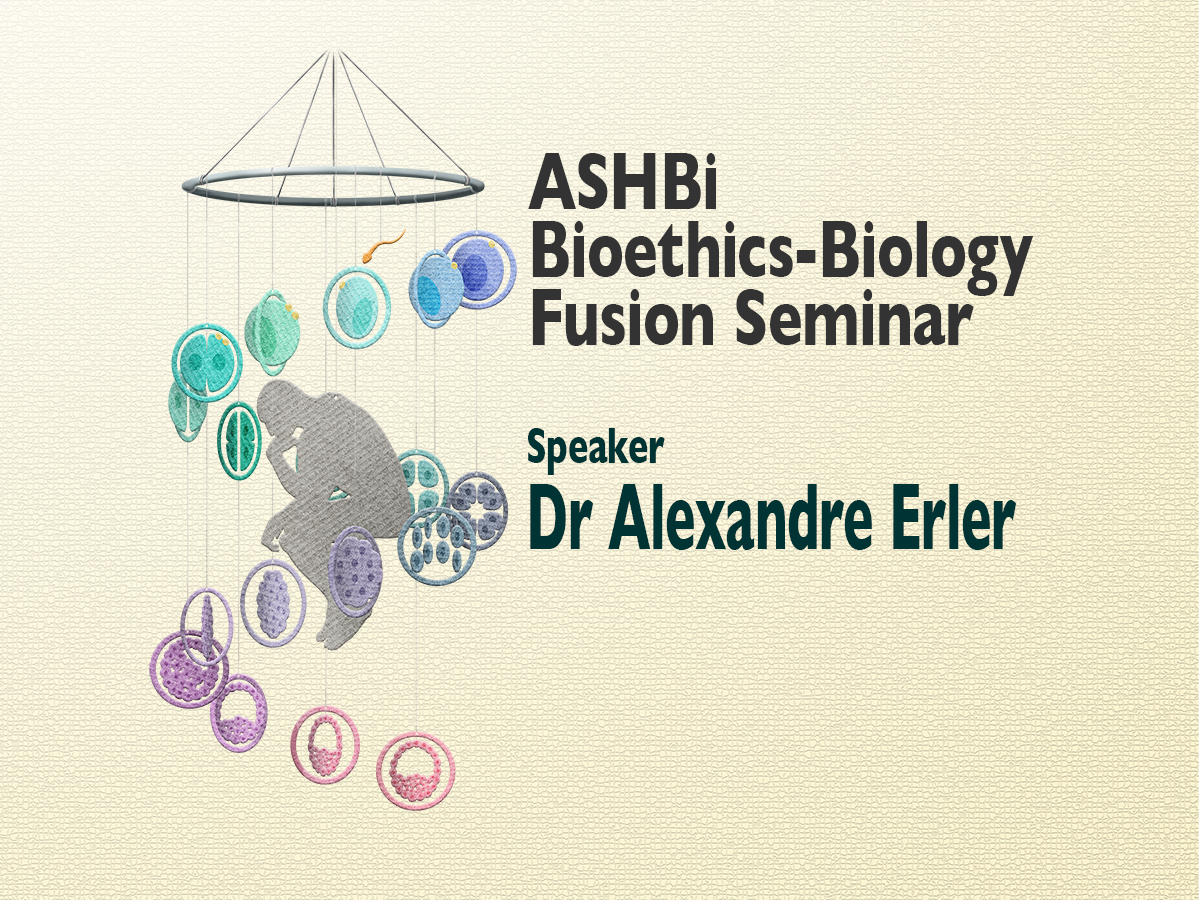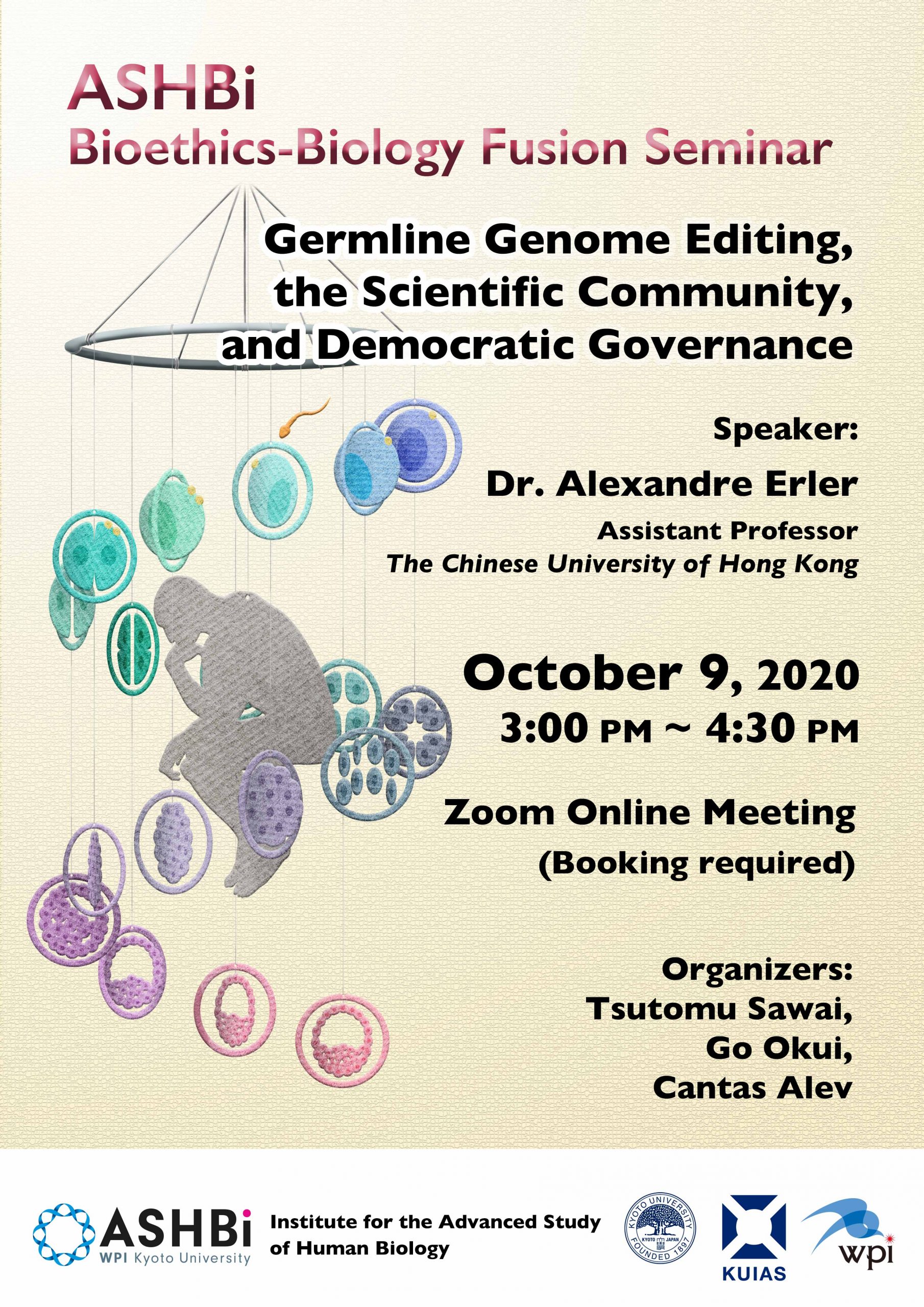Events

October 9, 2020
ASHBi Bioethics-Biology Fusion Seminar (Dr Alexandre Erler)
We will have the new ASHBi Bioethics/Biology Seminars funded by the ASHBi Fusion Grant. At this time, we invite Dr Alexandre Erler from Chinese University of Hong Kong as a lecturer.
If you have any interests in the topic, you are welcome to attend this seminar.
Event Details
- Date:
- Friday, 9 October 2020
- Time:
- 3:00PM—4:30PM, JST
- Venue:
- Zoom Online Meeting*
[NOTE] Highspeed LAN/WiFi environment advised for stability - Language:
- English
Title
"Germline Genome Editing, the Scientific Community, and Democratic Governance"
Speaker
Dr Alexandre Erler
Assistant Professor, Chinese University of Hong Kong
Abstract
Human Genome Editing, and particularly the editing of the human germline for reproductive purposes, are currently a prominent subject of debate worldwide, especially following scientist’s He Jian-kui’s widely criticized announcement in November 2018 that he had created the first gene-edited human babies. This talk will assess some of the key ideas that have been proposed for the regulation of Germline Genome Editing (GGE). I shall pay special attention to the requirement of “broad societal consensus” put forward in the wake of the first International Summit on Human Genome Editing in 2015, and incorporated into the recent call for a global moratorium on clinical applications of GGE. I will strive to clarify the consensus requirement, distinguishing it from a demand for global scientific consensus to ensure safe practices, and will assess the central rationale for the requirement, namely that it is necessary to ensure truly democratic governance of GGE (as opposed to rule by scientific or other experts). I will argue that, as it stands, the appeal to democratic governance fails to support the consensus requirement, insofar as it is intended to demand more than majority rule. That said, I will suggest that a similar requirement could still legitimately be de facto implemented via a voluntary decision by the scientific community, for the purpose of protecting public trust in science. I will conclude by highlight the need for consistency in regulation, insofar as the far-reaching social impact anticipated by proponents of the consensus requirement does not seem exclusive to GGE.

